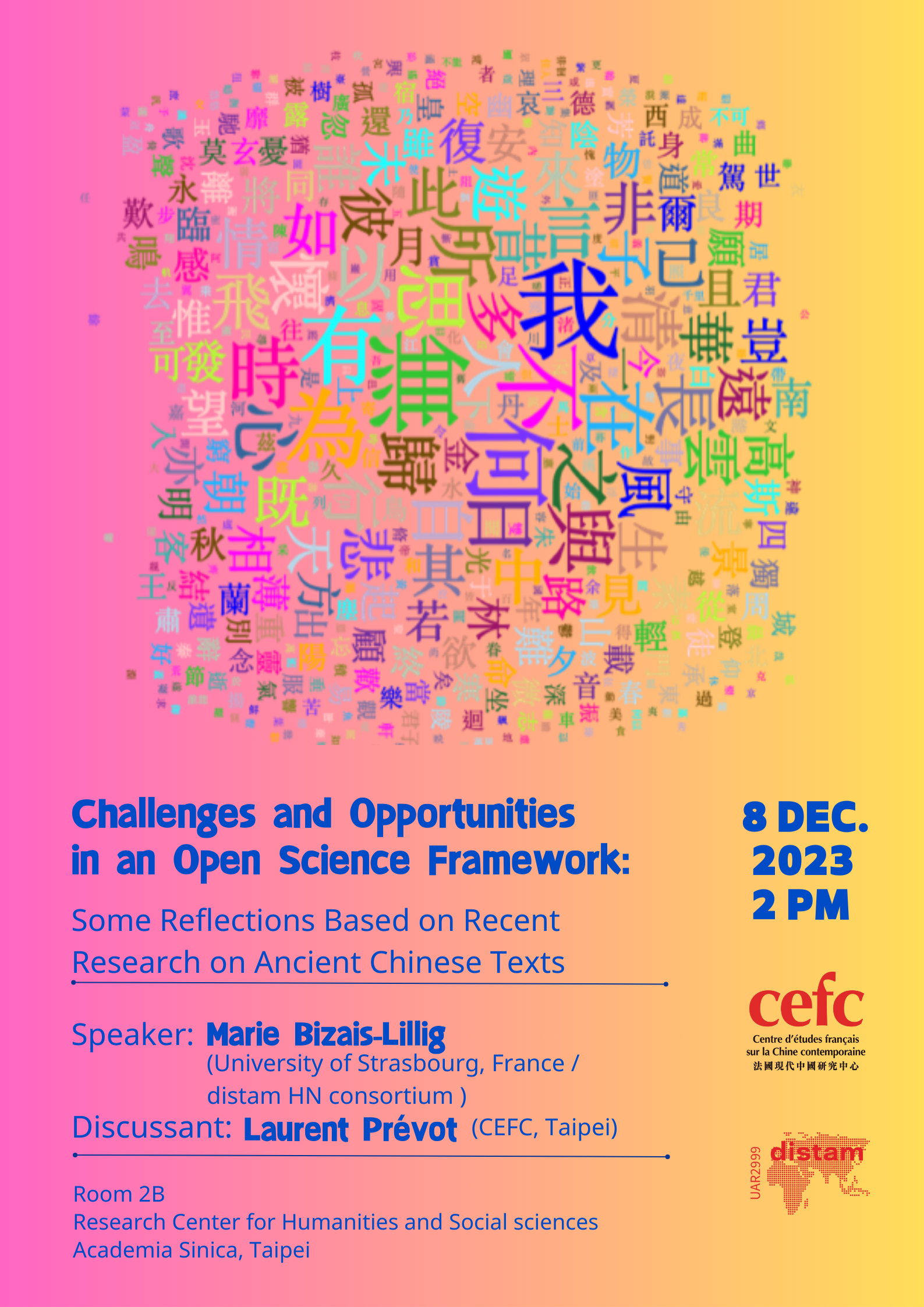- The French Centre for Research on Contemporary China (CEFC), Taipei Office presents a seminar :
Digital Humanities is a relatively emergent broad methodological framework which not only implies relying on computers to produce ‘data´, but also requires one to reflect on epistemological along with technical choices. This presentation will use the case of the ongoing Chi-Know-Po (Chinese Knowledge in Poetry) project to explain how embracing the principles of Open Science has proved essential in defining each step of the team’s work, and the questions this choice has raised from time to time. The Chi-Know-Po example will also show how the very existence of Open Science rests on the infrastructure available to the researcher. This discussion on making the best of new methodologies to explore an ancient Chinese body of texts will insist on the importance of sharing experiences and connecting projects to define and appropriate relevant methodologies, and thus include a presentation of the French Distam consortium (Digital Studies: Africa, Asia, and the Middle East).
Professors Laurent Prévot (CEFC) will be the discussant for this seminar.
Bio/
Marie Bizais-Lillig is Associate Professor of Classical Chinese Literature at the University of Strasbourg, Fellow of the Institute for Advanced Studies of the University of Strasbourg (USIAS), and member of the leading team of the Distam Huma-Num consortium (Digital Studies: Africa, Asia, and the Middle East). Her research interests cover the following topics: poetic formal transformations, genre representations, literati culture, and knowledge circulation in the Middle Ages (Six Dynasties and the Tang).
The seminar will be held in English.


